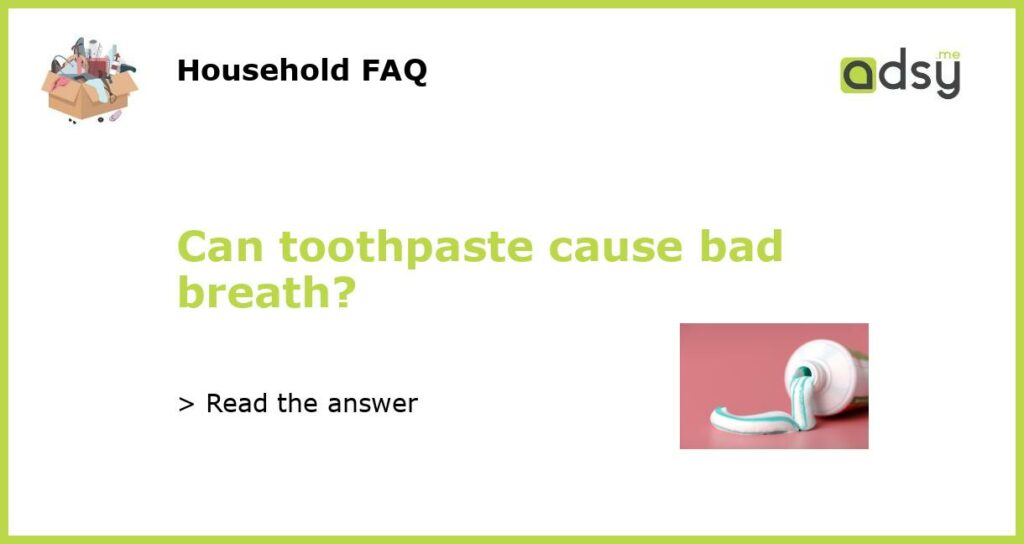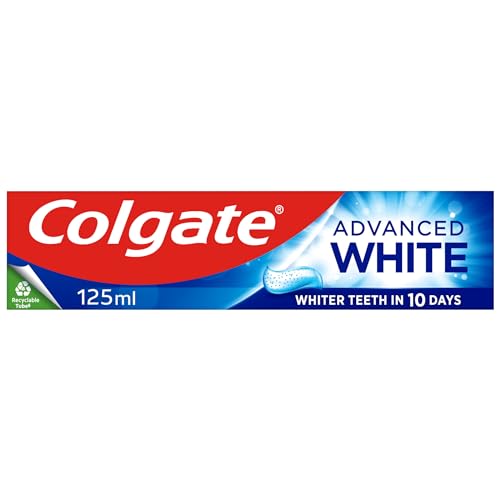The Connection Between Toothpaste and Bad Breath
Toothpaste is a crucial part of our daily oral hygiene routine. We use it to brush our teeth and freshen our breath. However, many people may wonder if toothpaste can actually cause bad breath. The answer is not as straightforward as you might think, as there are several factors to consider.
Ingredients in Toothpaste and Their Effects on Bad Breath
One of the main ingredients in toothpaste is fluoride, which helps fight tooth decay and strengthen enamel. Fluoride does not directly cause bad breath. However, some toothpastes may contain other ingredients that can contribute to bad breath.
One such ingredient is sodium lauryl sulfate (SLS), a foaming agent found in many toothpastes. SLS can cause dry mouth, which in turn can lead to bad breath. Additionally, some people may have an allergic reaction to SLS, resulting in oral discomfort and potential bad breath.
Menthol, a commonly used ingredient for its refreshing properties, can also have an impact on breath odor. While menthol itself does not cause bad breath, it can temporarily mask unpleasant odors without addressing the underlying cause.
Toothpaste and the Importance of Proper Brushing Technique
Brushing technique plays a significant role in oral hygiene and breath freshness. Even if you choose a toothpaste that does not contain any potentially problematic ingredients, improper brushing technique can still contribute to bad breath.
When brushing your teeth, it is important to pay attention to all the surfaces, including the back of your tongue. The tongue harbors bacteria, food particles, and dead cells, which can contribute to bad breath if not properly cleaned.
Choosing a toothbrush with soft bristles and replacing it regularly can also make a difference in preventing bad breath. An old and worn-out toothbrush may not clean your teeth properly, allowing bacteria to multiply and produce unpleasant odors.
The Role of Toothpaste in Treating Bad Breath
While toothpaste may not be the direct cause of bad breath, it can still play a role in treating it. Many toothpastes are specifically formulated to combat bad breath and neutralize odor-causing bacteria.
Look for toothpaste that contains breath-freshening ingredients such as hydrogen peroxide, zinc, or essential oils like peppermint or spearmint. These ingredients can help freshen breath by reducing the number of odor-causing bacteria in the mouth.
It is also important to note that toothpaste alone is not a solution for chronic bad breath, known as halitosis. If you have persistent bad breath, it is advisable to see a dentist or medical professional to identify the underlying cause and develop an appropriate treatment plan.
Conclusion – Toothpaste and Bad Breath: The Bottom Line
So, can toothpaste cause bad breath? The answer is that while toothpaste itself may not directly cause bad breath, certain ingredients and improper brushing techniques can contribute to it.
Choosing the right toothpaste and using it along with proper brushing technique can help maintain fresh breath. Look for toothpaste that contains breath-freshening ingredients and be sure to clean all the surfaces of your teeth, including your tongue.
If you are experiencing chronic bad breath, it is best to consult a dental professional who can identify the underlying cause and provide appropriate treatment. Remember, maintaining good oral hygiene goes beyond just toothpaste, so make sure to follow a comprehensive oral care routine for optimal breath freshness.






